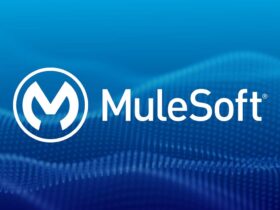You can’t even discuss industrial networking these days without talking about Linux. A popular operating system that’s been available since 1991 for both personal computers to small and medium-sized businesses, it has branched out to be used in automobiles, cell phones, web servers, and now embedded systems.
Linux is a group of open-source Unix-like working architecture frameworks dependent on the Linux kernel. Do you want to know more about it? Then you are right here. We’ve done our homework. We’ve searched high and low, and up and down. We’re pleased to be able to tell you precisely where you the best Linux career prospects are.
Let us go and look into what Linux? And its features and Job career scope.
What is LINUX?
Linux is the most popular and most-utilized open-source operating system. As a working architecture, Linux is programming that sits underneath the entirety of the other programming on a PC, getting demands from those projects and transferring these solicitations to the PC’s equipment.
About LINUX
Linux is like other working frameworks you may have utilized previously, for example, Windows, macOS, or iOS. Like other working frameworks, Linux has a graphical interface, and similar sorts of programming you are acclimated with, for example, word processors, photograph editors, video editors, etc. Much of the time, a product’s maker may have made a Linux form of a similar program you use on different frameworks. In short: in the event that you can utilize a PC or other electronic gadget, you can utilize Linux.
Why Use LINUX?
Linux is the most popular and most-utilized open-source working framework. As a working framework, Linux is programming that sits underneath the entirety of the other programming on a Computer, getting demands from those projects and handing-off these solicitations to the Computer’s equipment.
Who uses LINUX?
You likely as of now use Linux if you know it. Contingent upon which client overview you take a gander at, somewhere in the range of one-and 66% of the pages on the Internet are created by workers running Linux.
Organizations and people pick Linux for their workers since it’s safe, adaptable, and you can get phenomenal help from a huge network of clients, notwithstanding organizations like Canonical, SUSE, and Red Hat, every one of which offers business uphold.
Numerous gadgets you likely own, for example, Android telephones and tablets and Chromebooks, advanced capacity gadgets, individual video recorders, cameras, wearables, and that’s just the beginning, additionally run Linux. Your vehicle has Linux running in the engine. Indeed, even Microsoft Windows highlights Linux segments, as a feature of the Windows Subsystem for Linux (WSL).
Certification for LINUX
Certifications play a significant role by supporting your know-how and talents in the relevant area, giving your profession a new edge. Linux certifications help experts practice and learn and expand the expertise of Linux-based technologies in organizations. Linux certificate is important and it is important. Certifications are the path to your career. And the types of certification in Linux
- GCUX – GIAC Certified Unix Security Administrator.
- Linux+ CompTIA.
- LPI (Linux Professional Institute)
- LFCS (Linux Foundation Certified System Administrator)
- LFCE (Linux Foundation Certified Engineer)
Features of LINUX Programming to become Linux Programmer.
● Portable − Portability implies programming can take a shot at various sorts of equipment in the same manner. Linux part and application programs underpin their establishment on any sort of equipment stage.
● Open Source − Linux source code is unreservedly accessible and it is a network-based improvement venture. Numerous groups work in coordinated effort to improve the ability of the Linux working framework and it is persistently advancing.
● Multi-User − Linux is a multiuser framework that implies different clients can get to framework assets like memory/smash/application programs at the same time.
LINUX Job Responsibilities
Red Hat Linux is the world’s largest cloud operating system, with about 70% of Linux based OS servers world-wide. Red Hat’s market share is about 60%. Red Hat Linux has been continuously extended, and LAMP (Linux Apache MySQL PHP) has been run by 7% of the world’s Web servers. Linux offers modular, scalable options for this.
- Deploy and manage all server hardware and software systems, as well as oversee and guarantee the quality of all system availability.
- Maintain all system backups and assist in the restoration of all operations, as well as providing all users with the required instruction.
- Develop and manage all machine resources along with all scripts and automation systems, as well as oversee all capability preparation.
- Integrate the necessary functionality and address all problems through several platforms, as well as build and maintain needed enterprise servers.
- Review all documentation following framework specifications, as well as all design and testing operations, as well as the administration of all dynamic methodologies.
- Create an architecture that can meet all customer needs and conduct routine device troubleshooting to fix any problems.
- Monitor and review the availability of all application services, as well as execute all Linux server administration tasks.
- Assist in the design and deployment of all virtual devices, as well as the installation and maintenance of all configuration procedures.
- Retain and track all patch updates, as well as develop different patch installation procedures and ensure that all applications adhere to NIST standards.
- Manage all efficiency metrics for different tools and ensure their optimization; help all applications and ensure an optimum standard of customer care.
- Maintain and track all device frameworks, as well as providing after-hours maintenance for all applications, while maintaining an optimum level of Linux expertise.
- Diagnose the problem of all resources, support several servers, and back up all file and script management servers.
- Conduct checks of both current applications and patch recovery services, as well as conducting audits of all compliance procedures.
LINUX Associated Jobs Roles
Linux are liable for creating, troubleshooting, and recording PC programs for the Linux working framework and related programming applications. Their duties are like those of software engineers as a rule and may incorporate utilizing C++, Python, or another programming language to compose codes or guidelines that the gadget can comprehend. Software engineers work couples with programming designers, and covering obligations may incorporate making flowcharts, models, and framework interfaces for new projects. Linux working frameworks can be found on centralized computers, workers, and supercomputers.
- Linux Administrator- Linux administrators are head information technology professionals responsible for installing, configuring, and maintaining Linux operating systems in a number of organisations. This role is responsible for client operations and debugging to support mission-critical and growth activities.
- Linux engineer- A Linux Engineer downloads and tracks open-source Unix/Linux software applications and assists clients in this area. Linux Device Engineers are also responsible for the Linux operating system’s growth. They must have excellent management abilities, since they can work with both corporate and technological departments.
- Linux system administrator- A Linux System Administrator is responsible for the administration of machines that operate the Linux operating system. Through adhering to existing security standards and standards, the administrator is concerned for the security and protection of the databases and computer networks.
Top Location for LINUX job
Linux has a good scope in India. Cities like Bangalore, Hyderabad, Mumbai, Pune has a good scope. If you want to be a Linux Programmer you can try out in these cities.
Name of the companies hiring for a LINUX developer
- RackSpace Technology
- ARL IT service
- Apple
- Epsilon.
Salary packages for LINUX
A section level Linux Systems Administrator with under 1-year experience can hope to acquire a normal complete remuneration (incorporates tips, reward, and extra time pay) of ₹299,460 dependent on 11 pay rates. An early vocation Linux Systems Administrator with 1-4 years of involvement acquires a normal all-out pay of ₹393,889 dependent on 107 pay rates. A mid-profession Linux Systems Administrator with 5-9 years of involvement procures a normal complete remuneration of ₹552,065 dependent on 23 pay rates. An accomplished Linux Systems Administrator with 10-19 years of involvement procures a normal all-out remuneration of ₹915,628 dependent on 12 pay rates.
Where and how we are using this technology in real-time?
Use the Linux work area regularly and figure out it. You can even introduce programming, and it’ll remain introduced in the live framework until you reboot. Fedora’s Live CD interface, as most Linux appropriations, lets you decide to run the working framework from your bootable media or introduce it to your hard drive.
Do you need basic skills to need to learn this course?
- User account management.
- Structured Query Language (SQL) SQL isn’t a standard SA job requirement, but I’d suggest you learn it.
- Network traffic packet capture.
- The vi editor.
- Backup and restore.
- Hardware setup and troubleshooting.
- Network routers and firewalls.
- Network switches.
Conclusion:
Learning Linux would allow you to advance your career prospects. System management, cloud services, and big data are only a few of the most valuable skills you may acquire via Linux. Additionally, mastering Linux will broaden the understanding of computer science in general.
How helpful have you found this article to be?





Leave a Reply